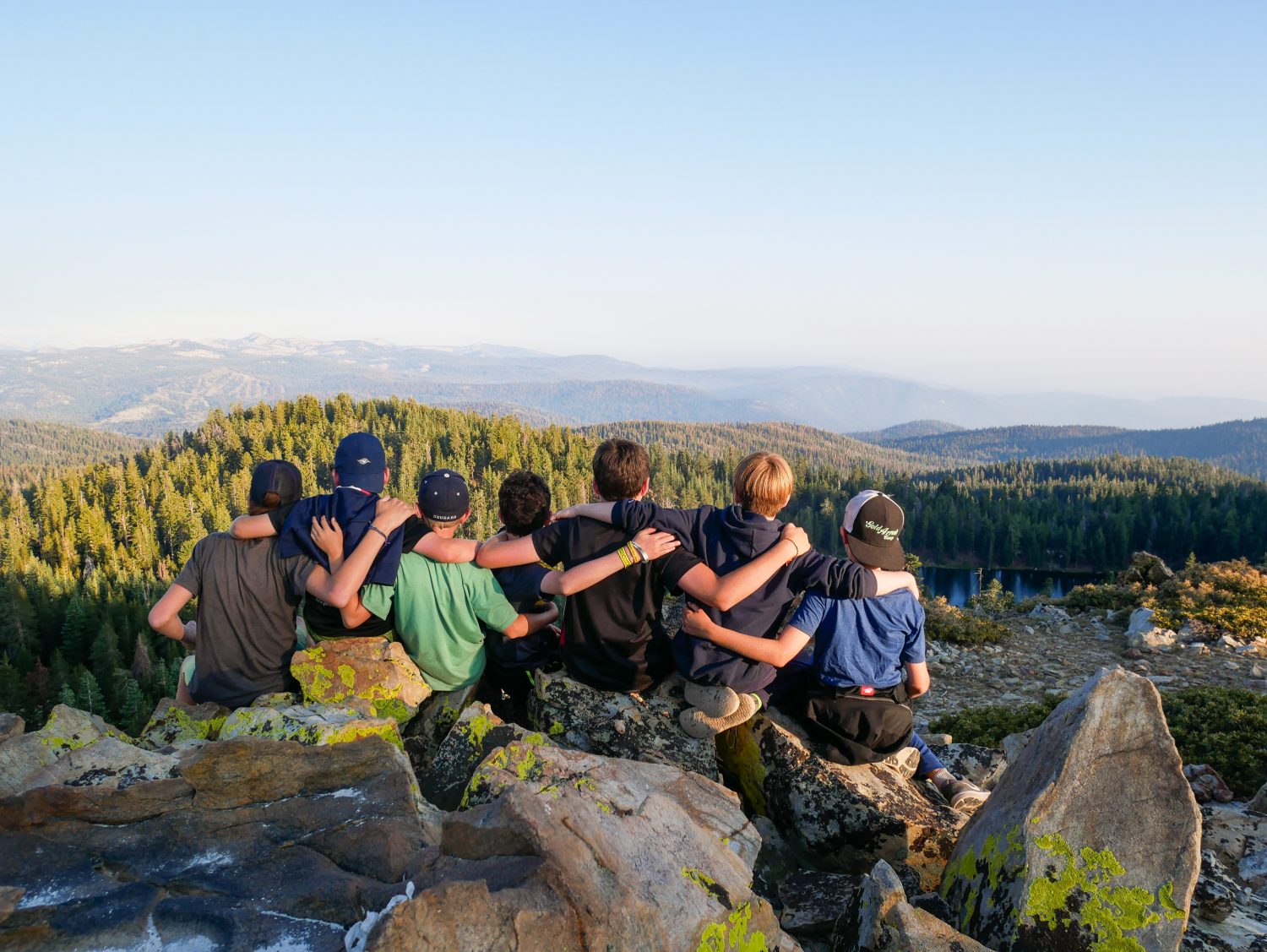Five Reasons Every Teen Should Go To Summer Camp
By Audrey “Sunshine” Monke. Originally published at Sunshine Parenting
#1 Improve Interpersonal Skills & Form Close Friendships
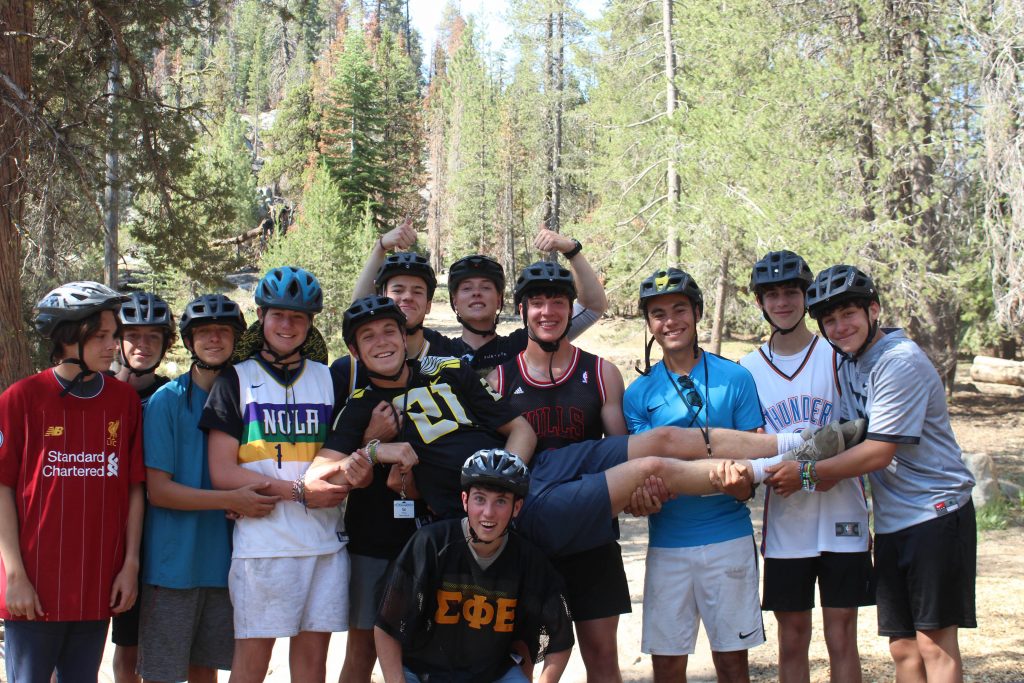
“In a … study of 515 senior executives, emotional intelligence was a better predictor of success than either relevant previous experience or high IQ.” -Forbes, “Look for Employees with High EQ over IQ”
In a world where anyone can look up a fact or equation and where machines are replacing even complex workplace tasks, employers need employees who can interact effectively with other people. This is one of the most important skills teens learn at camp. In the unplugged, non-competitive camp culture, teens build up their “emotional intelligence” (EQ), their face-to-face communication and relationship skills. 21st-century employers need people who can communicate, collaborate, and cooperate with others, and teens who come to camp get to practice those skills every day.
If you are debating whether your teen can miss a few weeks of SAT prep or a summer academic program, know that the 1600 SAT score will never outweigh the important communication and relationship skills he or she will develop at camp. Whether on a backpacking trip, cheering each other through a ropes course, or chatting around the campfire, the interpersonal skills teens build are the same ones they’ll need to be successful adults in families, communities, and companies.
#2 Take Safe Risks and Challenges
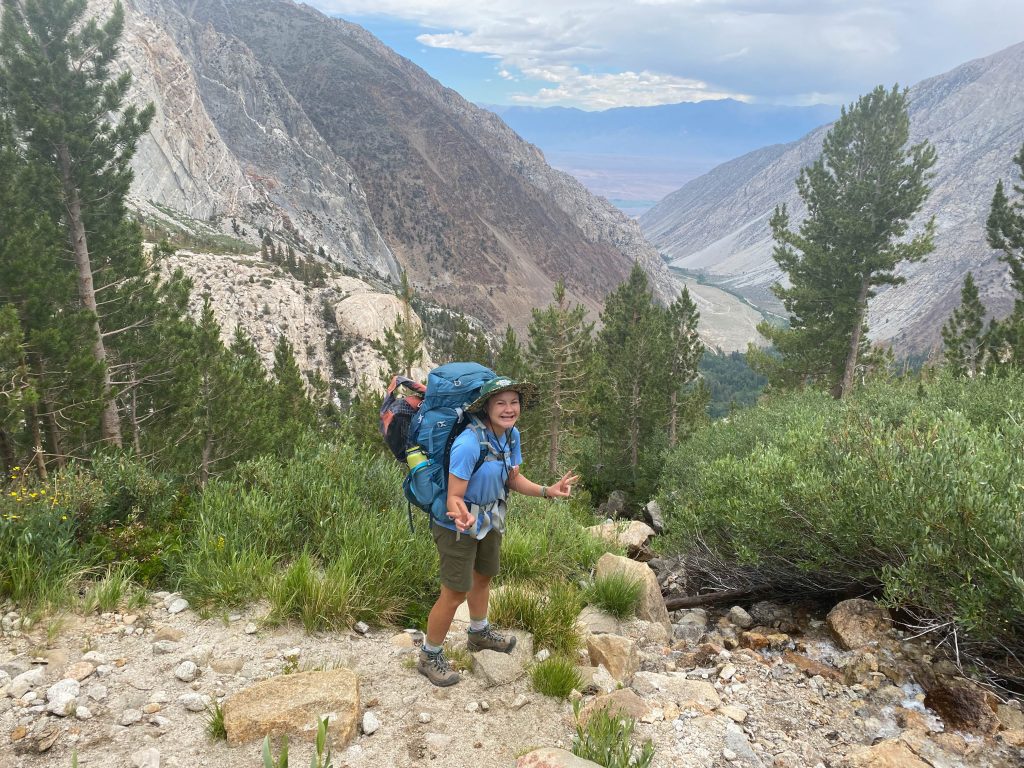
Teens thrive on risk. Thanks to recent findings (described in Age of Opportunity and Brainstorm) about the unique attributes of the teen brain, we now understand the reason for the “mortality bump” for 17-year-old boys. They do stupid, daring things not because they aren’t aware of the dangers, but because—to them—the reward of leaping from a rocky cliff or speeding along a curvy mountain road seems to outweigh the risk.
A teen at camp has the opportunity to take many safe, controlled risks. Climbing to new heights on a rock wall or ropes course, jumping the wake of a boat on a wake board, or reaching the peak of a 10,000-foot summit are all healthy risks teens take at camp. Plus, being in a controlled camp environment frees teens from exposure to health risks like alcohol and drug use.
#3 Experience Character Growth and Develop Life Skills
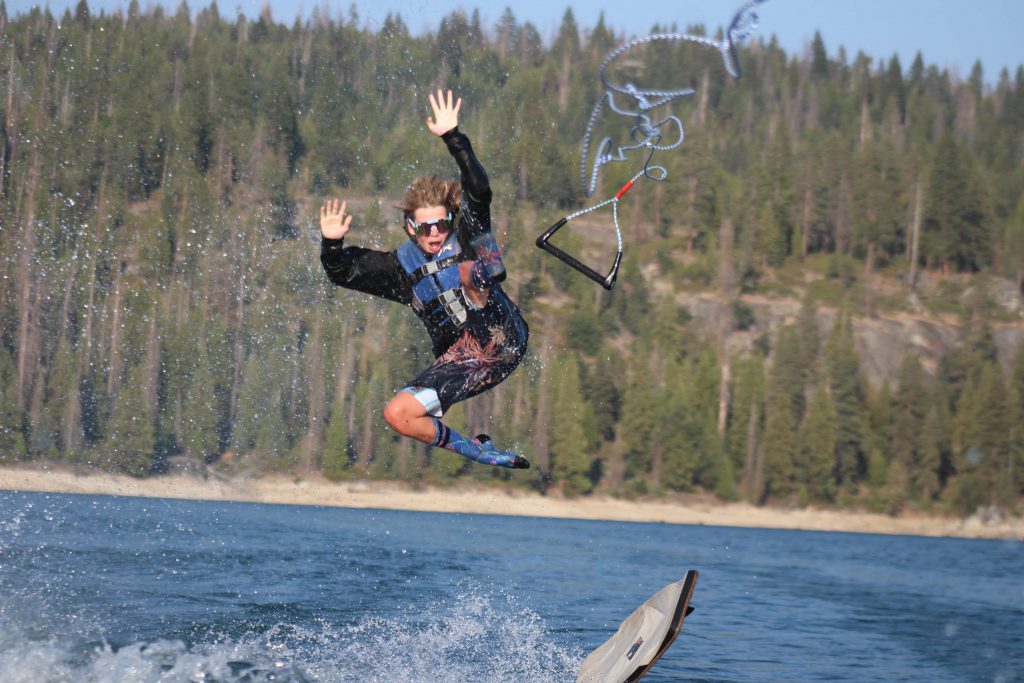
“A profound gap exists between the knowledge and skills most students learn in school and the knowledge and skills they need for success in their communities and workplaces.” –Partnership for 21st Century Skills
Schools aren’t doing a very good job teaching kids grit, perseverance, and leadership. But that’s not their job. Rather, schools are VERY busy teaching the core curriculum and assessing how well our kids know it. No school has time to see how “gritty” a kid is, but at camp, the “grit-meter” is always running, and it’s personal character—not a report card or an athletic achievement—that rises to the top.
Teens also develop other important life skills at camp, including independence, responsibility, and decision-making. Teens grow considerably in an environment away from their parents where they are forced to live on their own and find their own resources.
#4 Meet Positive Role Models
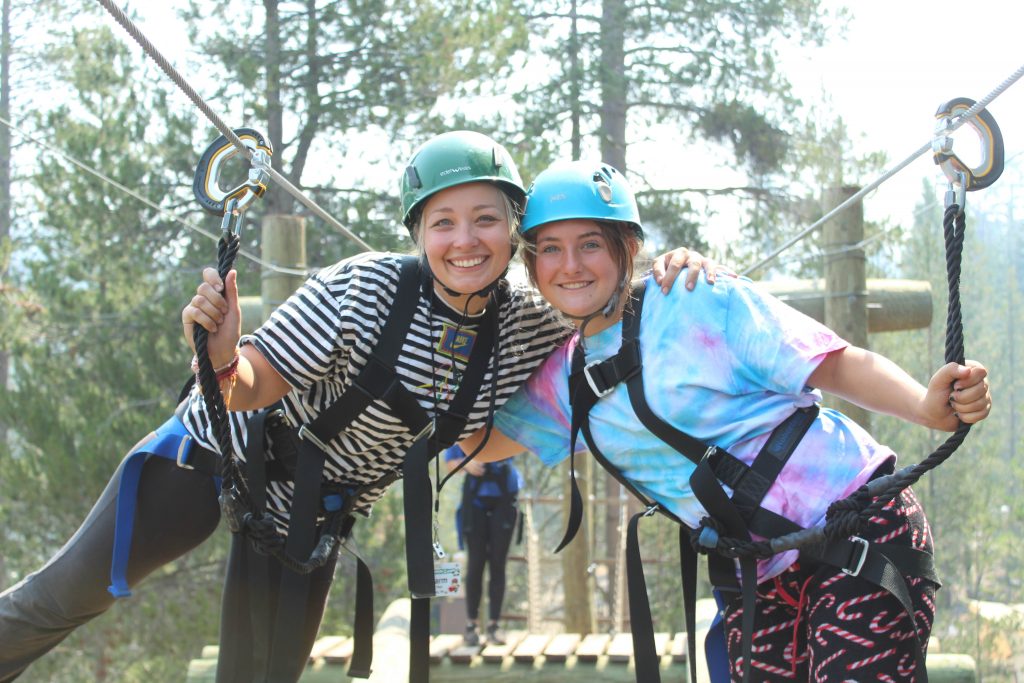
Watch or listen to a popular music video, reality TV show, or sports event, and you’ll be hard-pressed to find positive young adults teens can emulate. But walk into any well-run summer camp and you’ll be surrounded by wholesome, outdoorsy young people who like being around others and doing fun activities. Camp offers teens the opportunity to be among young adults who are positive role models and to form close relationships with them. Most camp counselors are hard-working college students who want to serve others. They are friendly, personable, and are just the kind of young adults you want your teen to become.
#5 Discover Their Best Self
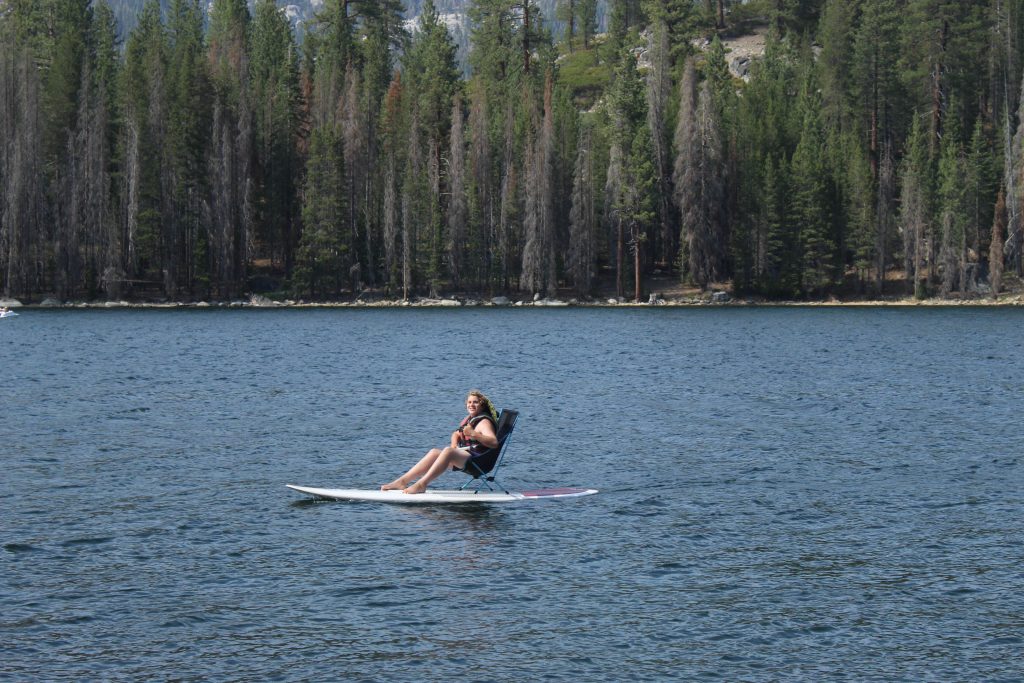
We live in a world where teens—often by their own parents—are steered towards success via the SAT, the college admissions grind, a “good” major, and a high-salary job. Look around at many adults, however, and see where that path got them. Despite knowing better, we still expose our kids to the same gauntlet.
Perhaps college education is the best option for most young people, but I’ve met many who are halfway done (or all the way done) and still don’t know who they are or what they are passionate about. Camp experiences offer teens the chance to step back from the treadmill of academics, competitive sports, and their sleep-deprived, over-scheduled existence, and instead think about what’s important to them. Many campers become less self-absorbed after spending a few weeks at camp, learning to train their focus on others. They also discover new hobbies and avenues to pursue in education and their future careers.
Each summer, tens of thousands of teens leave their phones and car keys at home and head to summer camp as campers, counselors in training, or counselors. Many teens who have never been to camp cannot relate to how a teenager could make such crazy personal sacrifices. And yet, teens are the age group that fills most quickly at many camps. Because, perhaps more than any other time during youth, camp offers the respite, recreation, and renewal to help teens thrive. Teens who have already been to camp know this and want to come back, year after year.

Gold Arrow Camp offers a Junior Counselor Program for returning GAC campers and an Outdoor Leadership Course for teens (grades 9th-11th).
Originally published at Sunshine Parenting.
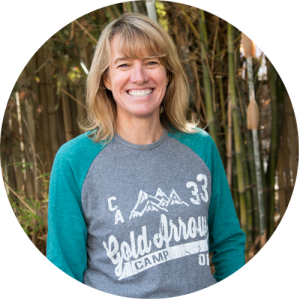
Audrey “Sunshine” Monke, MA, has been the owner of Gold Arrow Camp since 1989 and currently serves as the Chief Visionary Officer. In addition to her vision-casting and mentoring at GAC, Sunshine is an author (Happy Campers: 9 Summer Camp Secrets for Raising Kids Who Become Thriving Adults), podcast host, speaker and coach on the topics of parenting, social skills, and happiness. Find out more at her website, Sunshine Parenting.
Visit Sunshine Parenting for more summer camp-related posts & podcast episodes.
REX and the OLC
Episode 37.
On the 37th episode of the Gold Arrow Camp POG-Cast, we’re chatting with a camper who had his life changed by the Outdoor Leadership Course. REX, who has also completed our Junior Counselor program, sat down with Soy to talk about what made the OLC special and how the lessons he learned on the trail have impacted him at school and beyond.
Podcast: Play in new window | Download
Subscribe: Apple Podcasts | Spotify | Email | RSS
2019 Theme: Filling Buckets
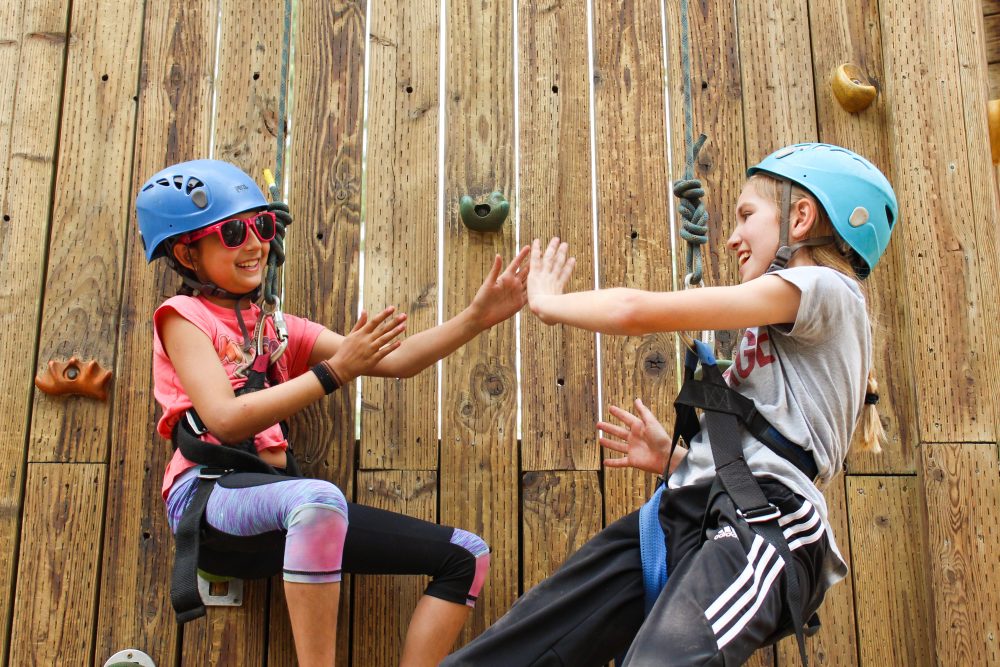
by Alison “Bean” Moeschberger
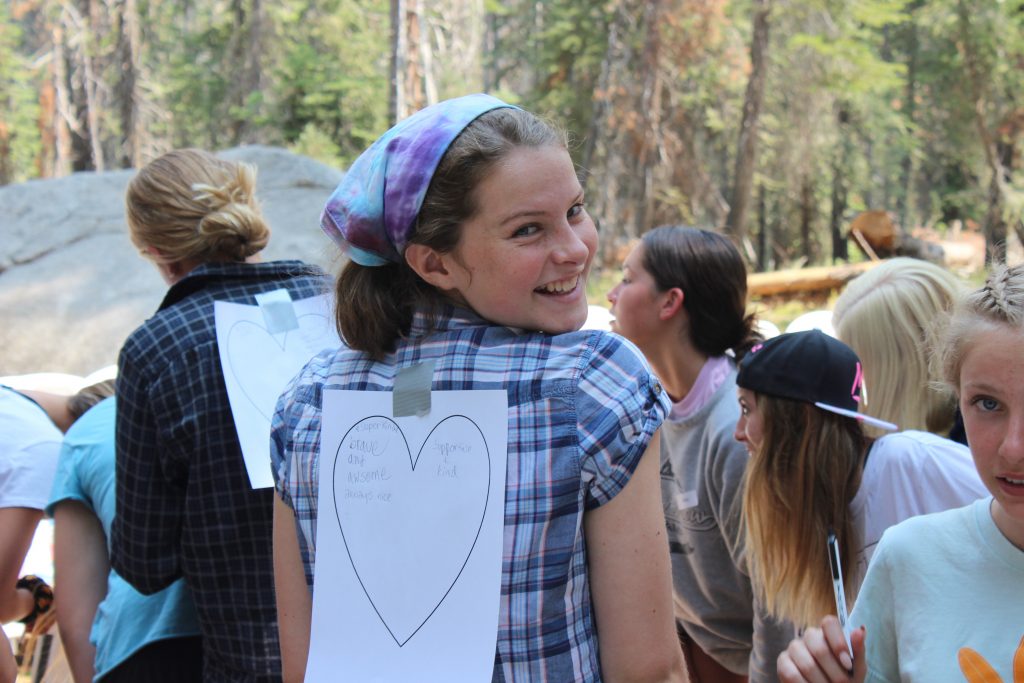
Every summer at Gold Arrow Camp, we choose a theme to guide our efforts in helping campers become the best versions of themselves. This practice started in the summer of 2012 when the staff selected “gratitude” as the guiding theme. We followed that with kindness (Cool 2B Kind), relationship building (Creating Connections), helpfulness (Give a Hand), grit (Growing Grit), positivity (The Energy Bus), and 2018’s focus on friendship (Find-a-Friend).
One thing that makes life at camp special is that we live in a community where our shared experience is derived solely from our interactions with each other. At camp, we exist in a perfect bubble, shielded from input and news from life outside of GAC. This provides us the privilege and responsibility of maintaining our own positive and encouraging atmosphere. Every interaction we have with another person is an opportunity to have a positive, negative, or neutral impact. It is easy to be too self-focused and worry about our own agenda and needs. Encouraging others and actively seeking opportunities to have a positive impact are noble challenges we are excited to embrace in our community.
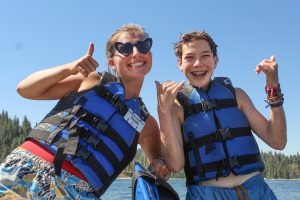
In keeping with our core value of equipping campers to bring positive changes to the world, we’re proud to announce our 2019 summer theme: Filling Buckets!
Carol McCloud’s children’s book Have You Filled A Bucket Today? is our inspiration. McCloud tells the story of a young boy and the impact his kindness and encouragement have on his community. Every person carries an invisible bucket. When someone does something kind, encourages another, or helps in some way, it fills another person’s bucket. Conversely, negative interactions empty people’s buckets. In the story, the boy discovers an important truth about kindness. He realizes that when he encourages others, his own bucket is filled. We’re thrilled to make our GAC community stronger by helping campers understand that encouragement makes others feel valued. Together, we will experience the joy that comes from making others our focus.
There are many opportunities at camp to fill other people’s buckets through kindness and encouragement. Filling Buckets means using our words and actions to show how much we care:
- Sharing a heartfelt smile
- Greeting each other by name
- Helping others without being asked
- Giving sincere compliments
- Recognizing others for bravery and achievements
- Encouraging others when they succeed and also when they’re struggling
- Elevating the needs of others above our own
- Seeking opportunities to have a positive impact on others
Filling Buckets builds on the work we’ve done in the areas of positivity, friendship, and kindness. The friendships we forge at camp are special for many reasons, and we know that keeping the focus on lifting each other up will add depth and richness to our connections. It is our sincere hope that 2019’s GAC campers will take this theme home and continue to make positive changes in their communities by being kind and encouraging with everyone they encounter. Everyone deserves a full bucket!
Enjoy this video of Monkey and Soy announcing the theme on our Facebook page.
